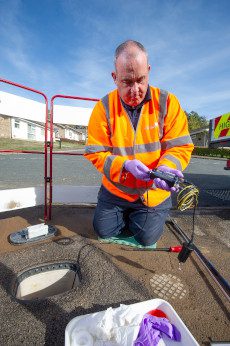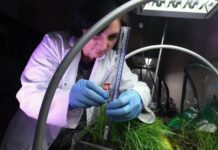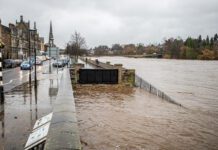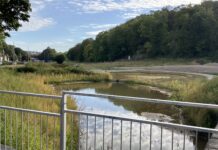
A project jointly undertaken by Anglian Water and leak detection expert Primayer has seemingly seen leakage reduction of 1.4 million litres of water per day in targeted areas. Primayer’s managing director Roger Ironmonger explains “how new technology and close collaboration led to the fantastic results.”
Leakage remains one of the biggest concerns for the water industry – in the UK about 20% of water supplied is lost through leaks. After setting some tough targets for the 2020-2025 investment period, regulator Ofwat is expecting companies to adopt new tools and techniques to tackle it.
The regulator said in its Emerging Strategy report that new technologies were “essential to increase productivity and meet strategic challenges in the most cost-effective way” – and in its latest price review, it also called for “collaboration between utilities and business”.
Primayer has collaborated with Anglian Water on a game-changing leakage project, that has resulted in a 1.4 million litre per day reduction in the areas where work has completed – a 35% shift in those areas.
Close collaboration
As a leakage specialist, Primayer says its research and development team works with utilities and their partners to develop best-in-class technologies. The team has been collaborating particularly closely with Anglian Water, which aims to reduce leakage by a further 22% across its network in AMP7, going above and beyond the target set by Ofwat. Anglian says it is already at the forefront of the water industry in tackling leakage – with half the amount of water lost to leaks compared to any other water company.
In collaborating, the two teams wanted to develop new leak detection technology to increase efficiency, save time, free-up staff and improve conversion rates.
After detailing a joint brief with Anglian Water, Primayer decided to develop its existing noise correlation technology. The result was the Enigma3hyQ, a multi-point noise correlation system that uses immersed acoustic hydrophone sensors, that in essence “listen” to sound waves inside the pipe to pinpoint leaks.

The hydrophone sensors are placed permanently into the pipe at convenient fittings such as fire hydrants or dedicated access points. This means greater sensitivity, resulting in more leaks being found more quickly. It returns all data from underground transmitters via cellular communication networks 3G or GPRS – there is no need to negotiate with local authorities over above-ground street hardware.
It will also result in quicker and easier repairs – meaning less disruption to customers.
Initial trials with Anglian, on 40km of mains in the town of Louth, Lincolnshire, showed the sensors were effective in accurately finding leaks over long distances of up to 4.6m, and inside pipes made from a large range of materials, including plastic.
This was a breakthrough – one of the biggest challenges faced across the industry is the ability to detect leaks on plastic pipes. This is because the noise that plastic pipes emit when they leak is greatly damped even over small distances from the leak, making the signal hard to detect and correlate.
The development has been called a game changer by Anglian Water’s smart water strategy manager Andy Smith, who said it would “revolutionise what we do in terms of leakage”.
The system is now being rolled-out across Anglian’s whole network with the first installation of 3,500 loggers well underway – another 1,000 will follow.
High conversion rate
So far, 2,023 loggers have been installed and 1,325 leaks found from 1,600 potential leak locations identified. This represents a conversion rate of 83%, which is exceptionally high.
Richard Fielding, hydraulic optimisation engineer at Anglian Water, said: “The consistent performance from the Enigma3hyQ is enabling us to make a real step-change in how we manage leakage. In addition to locating previously undetectable leaks on plastic pipes, we are improving the service we provide our customers by detecting and repairing leaks before they become visible.
“The permanent nature of this technology also increases our efficiency by allowing us to prioritise the deployment of our detection teams to the parts of our network with the highest need, resulting in reduced travel time, increased productivity and a reduction of the associated health and safety risks of routine leakage detection surveys.”
The significant reduction in leakage across Anglian Water’s network shows how much can be achieved when the supply chain and water companies work closely together to develop new solutions. With Anglian’s first roll-out of loggers well underway – with more to follow – a rapid uptake of this revolutionary technology worldwide is anticipated.
Automatic correlation
The Enigma3hyQ loggers transmit daily leak noise data to Primayer’s server via the 3G or GPRS communication networks. Correlation is performed automatically every 24 hours on signals received from many loggers in order to locate leak positions accurately.
The user can listen to the recorded noise, helping to confirm that correlation results are due to leak noise. The data is available at any location, on any desktop or mobile device, via PrimeWeb, Primayer’s cloud-based data collection software.
Ensuring Anglian Water meets its targets is very much a collaboration. Primayer is one of 10 companies jointly awarded the framework agreement, and the Enigma3hyQ noise correlating loggers form a key part of the leakage strategy.







